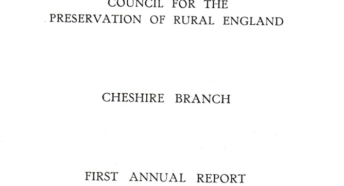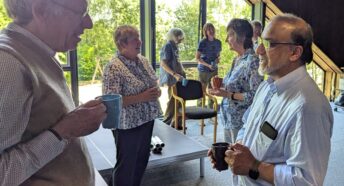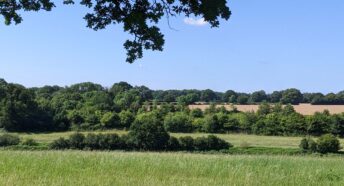Kent is frack free
Great news that Kent is now frack free as there are no petroleum exploration development licenses (which would allow test drilling) in the county.
Coastal Oil & Gas relinquished all their PEDL areas and no other company has applied to drill here thanks to determined opposition in the county.
CPRE Kent expert hydrology engineer Graham Warren said: “This is a relief for Kent as we there would have been a serious risk that fracking would damage the aquifer which supplies 70% of the county’s water. The gas and oil deposits are no more than 600-700m below the aquifer, the Chalk of the North Downs. There was also a risk that geological faults in the area would have been re-activated allowing gases and fracking fluids to leak into the chalk and so contaminate the water supply.”
However, our neighbours in Surrey are under threat with licence areas having been granted in some of the most beautiful countryside in the Mole Valley. Mr Warren is advising the Surrey campaigners, and said of the proposed horizontal drilling corridor that http://buyinglevitrahere.com will run beneath the aquifer:
“The oil company Europa will have to drill through rock formations that make up the principal aquifer, and these feature a dense network of geological faults – these are planes of structural weakness that allow vertical movement. My concern is that when Europa come to do pressure testing, this could trigger movement on those faults, creating a mini earthquake.
“Europa have produced no evidence to show that pressure testing operations can be carried out without risk to the overlying aquifer and water courses. The onus is on them to convince us, the community, that they can do so.”
He has also warned of a risk of water pollution and groundwater contamination. The drilling would occur in an area that is officially designated as seriously water-stressed by the Environment Agency, and the loss of a principal aquifer through contamination would be a major issue, potentially resulting in weeks, even months without the necessary capacity.
“We really are on a knife edge regarding our water resources, not just in north-east Surrey but throughout the entire south-east of England,” said Mr Warren.
To read a blog on the East Kent fracking situation click here.
- A number of important documents have yet to emerge. For example, a rigorous transport plan and a finalised air-quality assessment. The latter is critical given that allocations at Teynham will feed extra traffic into AQMAs.
- There seems to be no coherent plan for infrastructure delivery – a key component of the plan given the allocations being proposed near the already crowded Junction 7.
- There seems to have been little or no cooperation with neighbouring boroughs or even parish councils within Swale itself.
The removal of a second consultation might have been understandable if this final version of the plan were similar to that being talked about at the beginning of the consultation process. It is, however, radically different in the following ways:
- There has been a major shift in the balance of housing allocations, away from the west of the borough over to the east, especially around the historic town of Faversham. This is a move that raises many concerns.
- A new large allocation, with accompanying A2 bypass, has appeared around Teynham and Lynsted, to which we are objecting.
- Housing allocations in the AONB around Neames Forstal that were judged “unsuitable” by the council’s own officers have now appeared as part of the housing numbers.
- Most of the housing allocations being proposed are on greenfield sites, many of them on Grade 1 agricultural land – a point to which we are strongly objecting.
Concerns about the rush to submit the plan
The haste with which the plan is being prepared is especially worrying given the concentration of housing in Faversham. If the town is to take a large amount of new housing, it is imperative that the policies concerning the area are carefully worked out to preserve, as far as possible, the unique nature of the town. The rush to submit the plan is likely to prove detrimental.
As Swale does not have a five-year land housing supply, it is open to speculative development proposals, many of which would run counter to the ideas contained in the current plan. Some are already appearing. This is a common situation, and one that, doubtless, is a reason behind Swale’s haste.
Our overriding fear, however, is that this emphasis on haste is ultimately going to prove counterproductive. This is because it is our view that the plan, in its current form, is unlikely to pass independent examination. We are urging Swale to listen to and act upon the comments being made about the plan and to return the plan to the council with appropriate modifications before submitting it to the Secretary of State.
Essentially, this means treating the current consultation not as the final one but as the ‘lost’ second consultation.
The consultation ends on Friday 30 April and we strongly urge residents to make their opinions known if they have not already done so.
Further information










